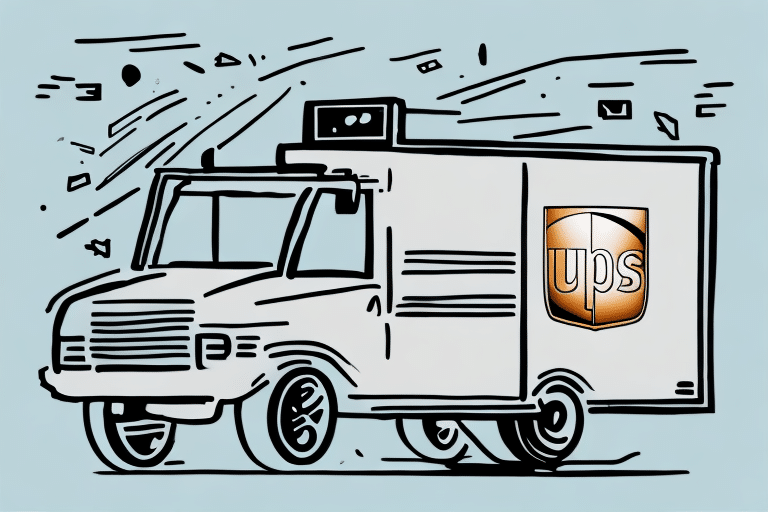Does UPS Have Insurance? A Comprehensive Guide
Are you concerned about the safety of your shipments with UPS? Wondering if they offer insurance to cover potential losses or damages? In this comprehensive guide, we address all your questions about UPS insurance, providing you with the essential information to make informed decisions when shipping valuable items with UPS.
The Importance of Insurance for Shipping and Delivery Services
Shipping and delivery services like UPS are integral to transporting goods globally. However, accidents and unforeseen events can occur during transit, making it crucial to ensure that your shipments are protected. Shipping insurance offers peace of mind and guarantees compensation for any losses or damages incurred during the transportation process.
Without insurance, you could be held liable for damages or losses during shipping or delivery, potentially resulting in significant financial losses for your business. Additionally, insurance can expedite the claims process, ensuring quick compensation so your business operations can continue without interruption.
According to a 2023 report by Statista, shipping insurance adoption has increased by 15% among e-commerce businesses, highlighting the growing importance of protecting parcels in transit.
Types of Insurance Offered by UPS
UPS provides insurance options tailored to various needs and budget levels, including:
- UPS Declared Value: Automatically included in UPS shipping rates, this covers up to USD 100 for each package.
- UPS Declared Value with Additional Coverage: Available for purchase to supplement the declared value, providing coverage up to USD 50,000 per package.
- UPS Package Insurance: Suitable for high-value and rare items exceeding the declared value limit.
For international shipments, UPS offers insurance that covers loss or damage during transit, with coverage amounts varying by destination country and package value.
Additionally, UPS provides liability insurance for businesses, covering damages or injuries caused by UPS employees during their duties. This is vital for businesses to protect against potential lawsuits and financial losses.
Understanding UPS Liability Limits and Coverage
UPS liability limits and coverage vary based on factors such as shipment destination, type of service selected, and the value of shipped items. To fully understand the available limits and coverage, it's essential to review UPS's shipping insurance terms and conditions and consult with a UPS representative regarding your specific shipment needs.
Key Factors Influencing UPS Liability:
- Value of Items: Higher-value items may require purchasing additional insurance to ensure full protection against loss or damage.
- Packaging: UPS has specific packaging guidelines. Non-compliance can result in denied coverage for any loss or damage, so it's crucial to adhere to their packaging standards.
How to File a Claim with UPS for Damaged or Lost Packages
If your package is damaged or lost, you can file a claim with UPS by following these steps:
- Gather necessary documentation, including the tracking number, proof of value, and evidence of damage.
- Submit your claim online through the UPS Claims Center.
- Alternatively, contact UPS's customer service to initiate the claim process.
UPS reviews your claim and provides compensation based on their terms and conditions.
Note the following time limits for filing claims:
- Lost Packages: File within 60 days of the shipment date.
- Damaged Packages: File within 9 months of the shipment date.
For frequent shippers, UPS offers additional insurance options for high-value shipments, providing coverage beyond standard liability limits and ensuring comprehensive protection for valuable packages.
Tips for Maximizing Your UPS Insurance Coverage
To maximize your UPS insurance coverage, consider the following best practices:
- Declare Accurate Package Value: Ensure the declared value reflects the true worth of the shipment to avoid underinsurance.
- Proper Packaging: Use secure and appropriate packaging materials to minimize the risk of damage or loss.
- Purchase Additional Insurance: For high-value shipments that exceed the declared value limit, consider buying additional insurance.
Additionally, maintain records of all shipped items, including item names, descriptions, and values, to facilitate the claims process if needed.
Familiarize yourself with UPS's insurance terms and conditions, understanding coverage limits, exclusions, and deductibles to make informed shipping decisions.
Comparing UPS Insurance to Other Shipping Providers
When selecting shipping insurance, it's important to compare UPS's offerings with other providers to ensure you receive the best coverage and rates. Factors to consider include:
- Coverage Options: Different providers offer varying levels of coverage, so assess what each policy covers.
- Rates: Compare the cost of insurance relative to the coverage provided.
- Exclusions and Limitations: Understand any restrictions or exclusions in the policies.
For a detailed comparison of shipping insurance options, refer to the U.S. Small Business Administration's guide on shipping insurance.
Common Misconceptions About UPS Insurance
There are several misconceptions about UPS insurance that can lead to misunderstandings:
- Automatic Full Coverage: A common myth is that UPS automatically covers the full value of your package. In reality, coverage depends on the declared value and service type.
- Comprehensive Damage and Loss Coverage: While UPS insurance covers many incidents, there are limitations and exclusions in their liability, so it's essential to review the terms carefully.
- Always the Best Option: UPS insurance may not always be the most cost-effective or comprehensive option compared to other providers. It's important to assess all available options.
Ensure you review UPS's terms and policies to understand the extent of their insurance coverage and assess whether it meets your specific shipping needs.
Purchasing Additional Insurance for High-Value Shipments
When shipping items of substantial value that exceed the standard declared value limit, purchasing additional insurance is crucial for comprehensive protection. Here's how to proceed:
- Contact a UPS representative or use their online shipping platform to add additional insurance.
- Determine the required coverage based on the item's value and assess the associated costs.
UPS's package insurance can cover up to USD 50,000 per package, providing extensive protection for high-value and rare items.
Consider the value and risk involved in transit to decide on the appropriate level of additional insurance coverage.
Choosing the Right Shipping Insurance for Your Business
Selecting the appropriate shipping insurance involves evaluating multiple factors to ensure adequate protection:
- Budget: Assess how much you can allocate for insurance without compromising other business operations.
- Shipment Value: Higher-value shipments may require more extensive insurance coverage.
- Destination: International shipments may have different insurance requirements and costs.
- Service Type: The type of UPS service selected can influence insurance coverage options.
Additionally, verify that the insurance policy covers all items you plan to ship, especially if you handle fragile or hazardous materials.
Opt for insurance providers known for reliability and quality customer service to ensure smooth claims processing and support.
Conclusion
UPS offers a variety of insurance options to protect your shipments against damage or loss. Understanding and selecting the right insurance coverage is essential to safeguard your valuable items during transit. By following best practices and thoroughly reviewing insurance terms, you can ensure that your shipments are adequately protected and arrive safely at their destinations.
Moreover, UPS's additional services, such as package tracking and delivery confirmation, provide further assurance by allowing you to monitor your shipment's progress and receive notifications upon delivery.
Lastly, consider the cost versus the benefit of shipping insurance for each shipment to determine its necessity. While insurance offers valuable protection, it may not be required for every package. Carefully weigh the potential risks and benefits to make informed decisions about insuring your shipments.




















